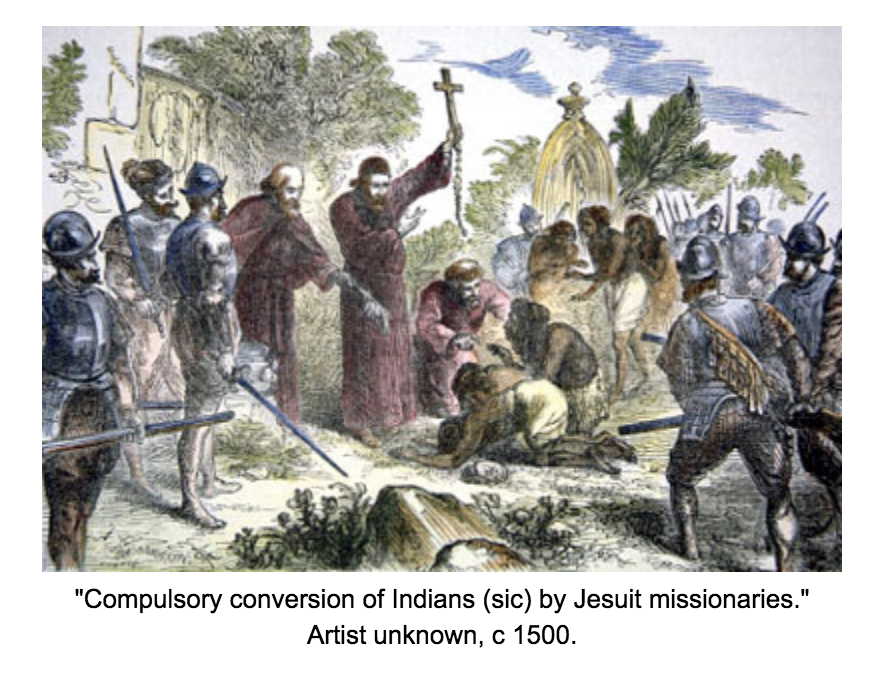How Toxic Shame Turns Evangelization Into Abuse

Toxic shame is one of the most powerful forces in human culture.
It is commonly discussed in therapy and self-help circles. People also regularly talk about the “guilt and shame” of cultural Christianity, especially as it relates to sexuality.
But I have rarely heard anyone talk about how shame manifests in pastoral settings. How does shame impact how we function as pastors, activists and chaplains? In this post, I want to talk about the role shame plays in evangelization—how we share the good news of the faith.
It goes like this:
Another way of talking about shame is self-hatred and self-doubt. Shame is, after all, a feeling of disgust about some aspect of who you are and a desire to hide it.
Self-hatred is, by definition, a lack of self-love. Therefore it can be said that shame is a lack of interior self-validation. People with shame simply do not feel good about what they do or who they are on some subconscious level.
Going further, people who lack self-validation tend to seek out external validation to fill the emptiness and treat this wound.
And what is a powerful form of external validation? To conquer someone else, dominate them or convert them. Since this post is about religious practices, I’ll focus on the latter.
Imagine if someone else will give up something as personal and visceral as their own religion and culture in order to adopt your religion and culture. What a tremendous affirmation that must be! This external validation is a way of saying, “you must be okay, because someone else wants to be like you.” It can be quite a rush. It feeds the ego. We think it’ll treat our wounds, but sadly, it does not. The emptiness will not go away in any long-term way no matter how many you convert. The reason is because external validation can never overcome your own refusal to validate yourself. No form of bullying or abuse is ever truly satisfying.
Those who evangelize out of shame do it in an attempt to eradicate the other person and create a facsimile of themselves. They hate you because they actually hate themselves. They cannot appreciate the God-given dignity which everyone already has just as they are, because they cannot accept the same truth about themselves.
You would think it would be the opposite, right? Why would someone who displays self-hatred want to replicate themselves? Rather, doesn’t this instead sound like pride? Don’t prideful people feel so good about themselves that they arrogantly think everyone else should be just like them? But that’s not what’s really happening. Pride is always the mask that hides shame and self-hatred.
Prideful people spent enormous energy putting forth a positive image, but the only reason they are driven to do this is because they feel empty inside. True self-love is much more assured and calm. Someone who feels good about themselves will also find it easier to feel good about others just as they are—without any need to change them.
Someone struggling with toxic shame may look “together” on the surface. They may have what seems like the perfect look, perfect family and perfect job. In fact, shame-driven people work hard to control these appearances, because shame is linked to a need to be in control. But at their core they don’t feel good about who they are. They may not even be aware of this feeling, but it gnaws away at them. They feel rotten inside.
This is not, I believe, the evangelization Jesus is asking of us in the gospels. Jesus speaks from the tradition of the psalmists, who remind us that “our cup overflows” (Psalm 23:5) with God’s blessings. We can be so filled with God’s goodness, so aware of the blessings in our lives, that we are naturally brimming over with joy and want to share that with others. It simply radiates out of us whether we intend to or not:
For you shall go out in joy,
and be led back in peace;
the mountains and the hills before you
shall burst into song,and all the trees of the field shall clap their hands.
Isaiah 55:12 (NRSV)
Evangelizing should not be about conquering other people as much as it is giving them a wonderful gift. God has given you such blessings that the only appropriate response becomes paying it forward to others.
The times I’ve evangelized the best were when I wasn’t trying. My life and my joy simply witnessed to something so good that others wanted to know more about it.
That’s the evangelization we’re called to in Scripture. But that’s not the evangelization that happens so often in the world.
Which kind of evangelization do your support? Do you want to turn everyone else into facsimiles of yourself as a way to treat your lack of self-worth? If so, just know that it can lead to abuse and is rarely satisfying in a long-term war. Or are you so happy and joyous that it simply bubbles out of you naturally and you find you want to share this good thing you’ve found?
To be fair, not everyone with toxic shame lashes out in overtly abusive ways. The majority of the population—if not everyone—has some element of shame they are dealing with. That is why it is good to be on the lookout, as toxic shame, and the abuse which is often in its wake, can show up in surprising ways.
***
I highly recommend the book, Healing the Eight Stages of Life, by Fr. Matthew Linn, SJ, Dennis Linn and Sheila Fabricant Linn. It’s the only book I found that approaches the eight stages of Erik Erikson in a pastoral way, rather than as an academic exercise. Shame features strongly in Erikson’s theory of psychosocial development. This book is simple but shocking powerful.
Visit Frank Lesko’s website The Traveling Ecumenist
